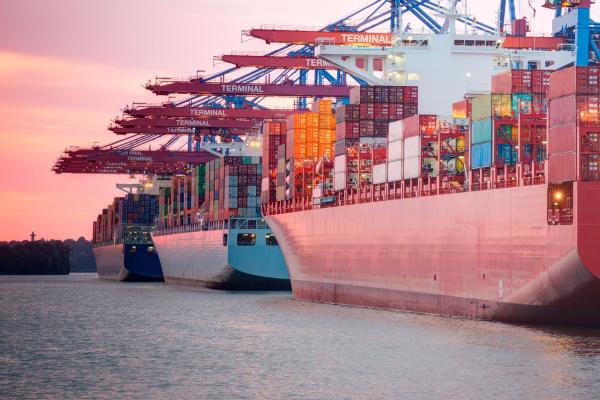Insights on International Trade & Investment
865 total results. Page 16 of 35.
In recent months, new and modified Department of Commerce regulations impacting antidumping (AD) and countervailing duty (CVD) proceedings have taken effect.
In recent months, new and modified Department of Commerce regulations impacting antidumping (AD) and countervailing duty (CVD) proceedings have taken effect.
In recent months, new and modified Department of Commerce regulations impacting antidumping (AD) and countervailing duty (CVD) proceedings have taken effect.
In recent months, new and modified Department of Commerce regulations impacting antidumping (AD) and countervailing duty (CVD) proceedings have taken effect.
In recent months, new and modified Department of Commerce regulations impacting antidumping (AD) and countervailing duty (CVD) proceedings have taken effect.
In recent months, new and modified Department of Commerce regulations impacting antidumping (AD) and countervailing duty (CVD) proceedings have taken effect.
In recent months, new and modified Department of Commerce regulations impacting antidumping (AD) and countervailing duty (CVD) proceedings have taken effect.
Twenty-five Arent Fox LLP practices have been recognized in the 2022 “Best Law Firms” rankings that are published annually by US News & World Report and Best Lawyers.

On November 4, 2021, the Occupational Safety and Health Administration (OSHA) issued its long-awaited emergency temporary standard (ETS) mandating that large employers require employees to be fully vaccinated against COVID-19 or obtain weekly tests and wear face coverings in the workplace.
Brands Must Ensure Forced Labor is Not Used and Environmental Claims are Accurate
On October 31, 2021, the Department of Commerce and the Office of the US Trade Representative announced an agreement with the European Union (EU) to remove the 25% additional tariffs on steel and 10% additional tariffs on aluminum pursuant to Section 232 of the Trade Expansion Act of 1962.
A recent announcement by the US Environmental Protection Agency (EPA) got the immediate attention of companies that manufacture, process, or import finished products for sale and use by consumer, commercial, and industrial customers.
The Biden Administration just announced that starting November 8, 2021 there will be stricter vaccine and COVID testing requirements for all air travelers into the US.
In this installment of the Five Questions, Five Answers podcast, Director of North American Manufacturing Birgit Matthiesen explores the impact of the USMCA on the electric mobility sector with Antonio J. Rivera and James Kim.
Mattress manufacturer, Resident Home LLC and its owner, Ran Reske, will pay $750,000 to settle Federal Trade Commission (FTC) charges over alleged misrepresentations that its mattresses were made from 100% USA-made materials in violation of an earlier FTC administrative order prohibiting the company
In this installment of the Five Questions, Five Answers podcast, Director of North American Manufacturing Birgit Matthiesen breaks down the First Sale Rule with Customs & Import Compliance Partner Angela Santos.
On October 5, 2021, the United States Trade Representative (USTR) announced the Biden Administration’s highly-anticipated China trade policy.
In late September, the Biden Administration took a variety of actions to address the ongoing global semiconductor shortage and the various supply chain disruptions caused by the COVID-19 pandemic.
In a Notice of Inquiry, the FCC is requesting public comment in a proceeding that will help determine the scope and nature of regulation of the “Internet of Things” for the next several decades.

Importers should be prepared for increased forced labor actions (including new Withhold Release Orders and product import bans) in connection with products from Latin America, the Middle East, and Africa.
On July 2, 2021, the U.S. Department of Agriculture’s Animal and Plant Health Inspection Service issued a Federal Register Notice announcing that additional plant and plant products (including certain wood-based essential oils, suitcases of wood, certain musical instruments, wood packing materials.
On September 2, 2021, OFAC published an update to their October 2020 Ransomware Advisory. We reported on the original Ransomware Advisory in our alert on October 8, 2020, OFAC’s New Ransomware Advisory.
Sixty-nine Arent Fox LLP attorneys have been rated as leaders in their profession by The Best Lawyers in America 2022.
On July 30, 2021, a notice of proposed rulemaking was published in the Federal Register with changes to two regulations that have the potential to materially affect the supply chains of products where manufacturing in the United States does not rise to the level of “substantial transformation.”